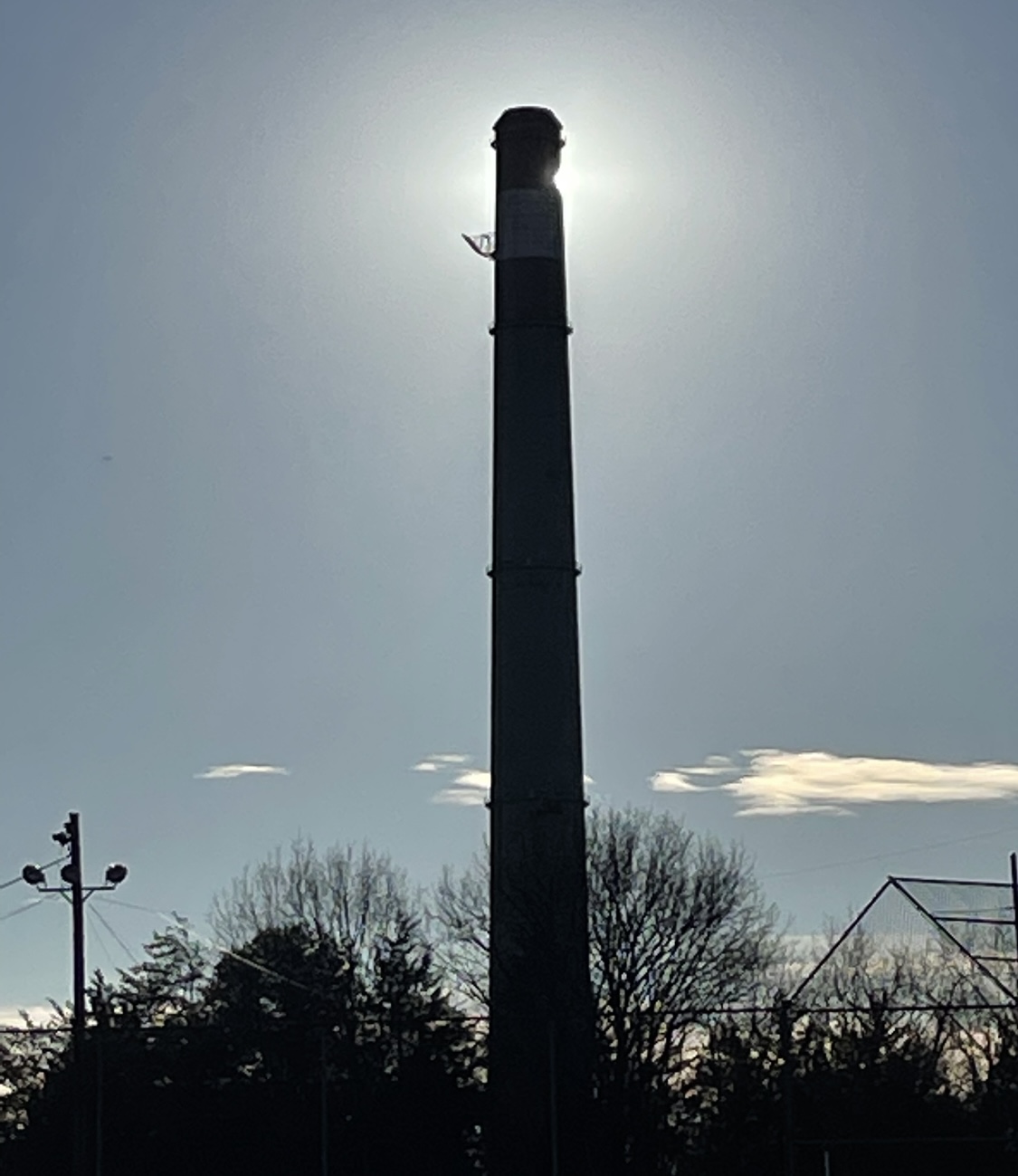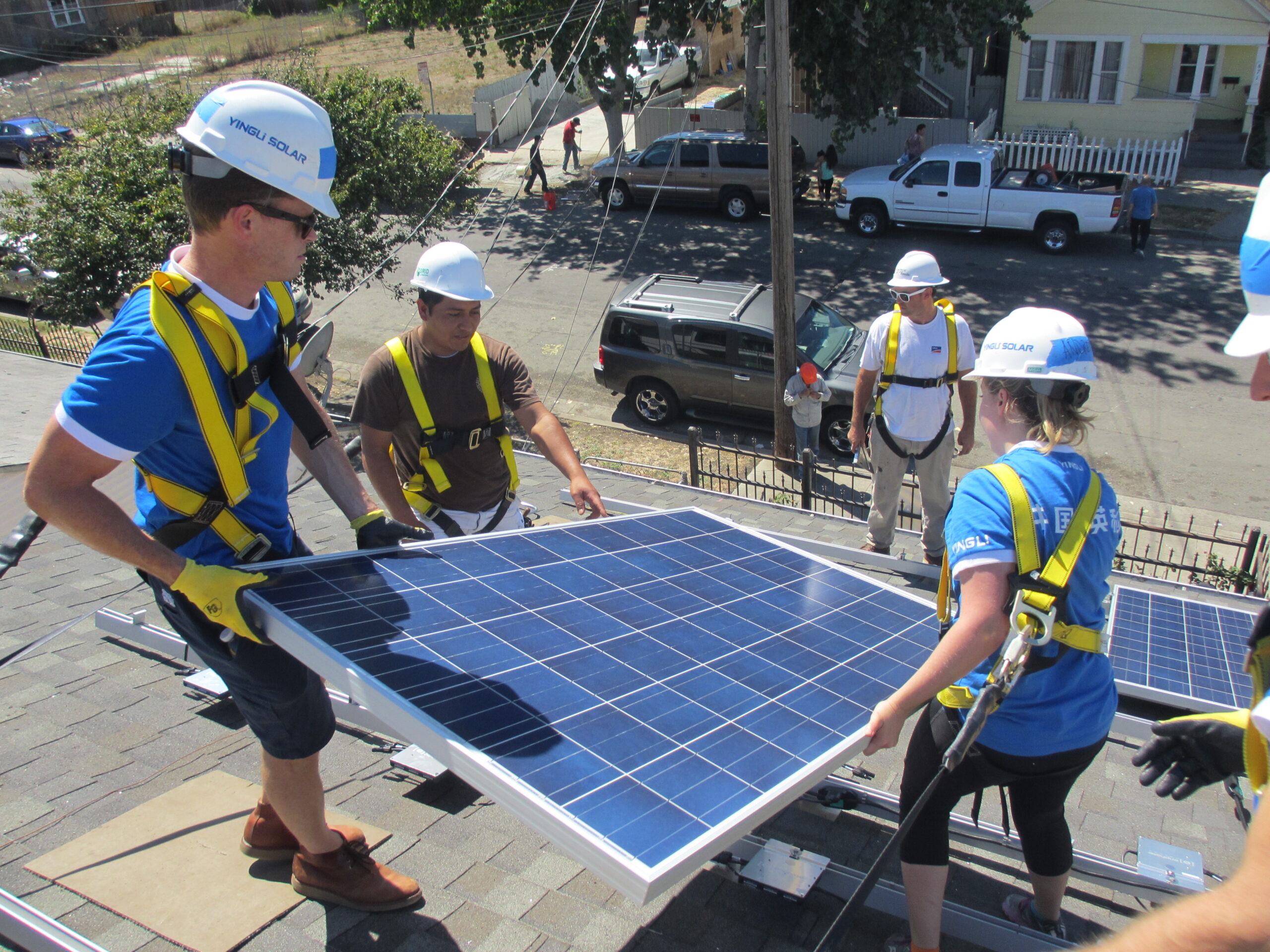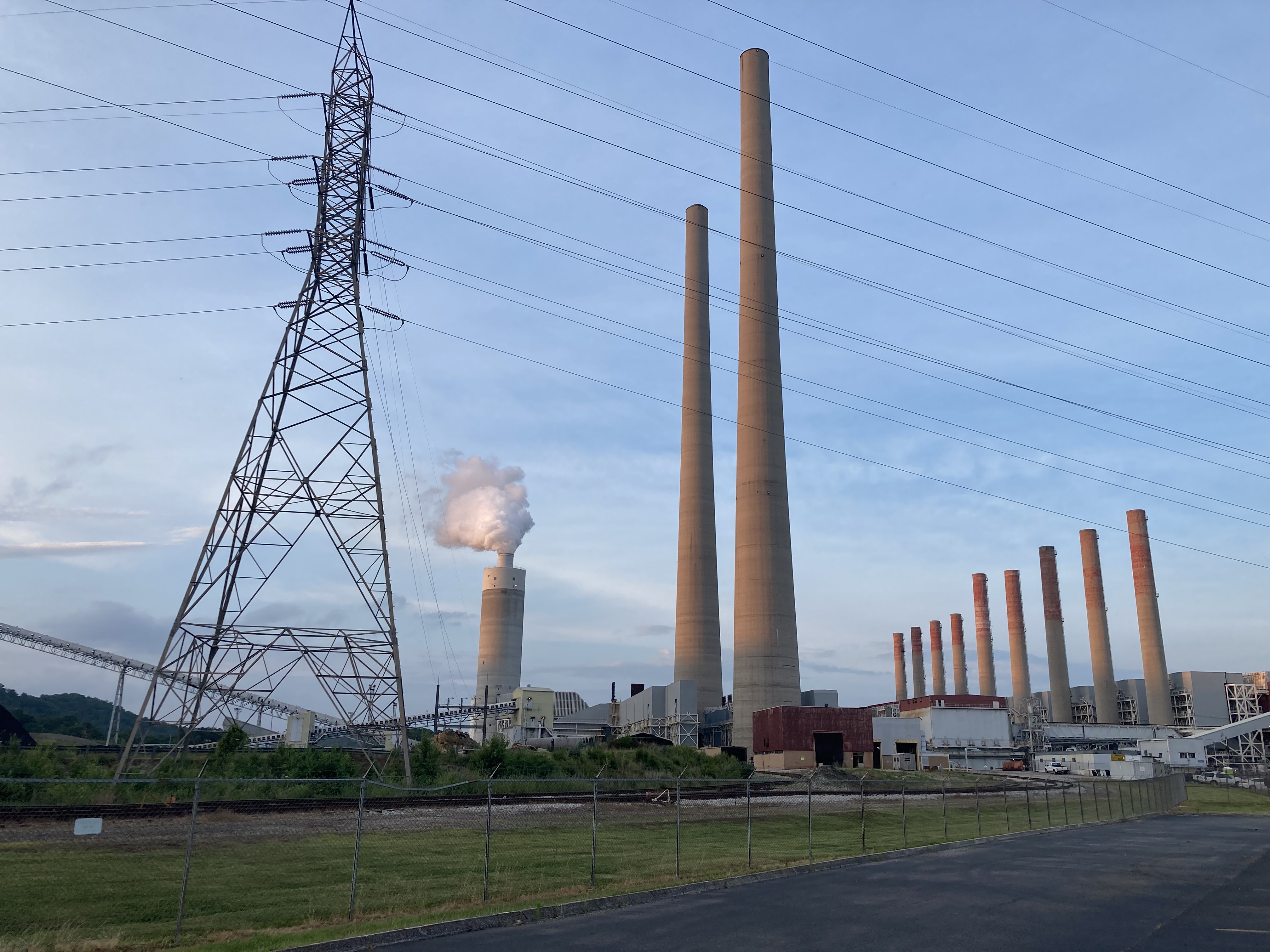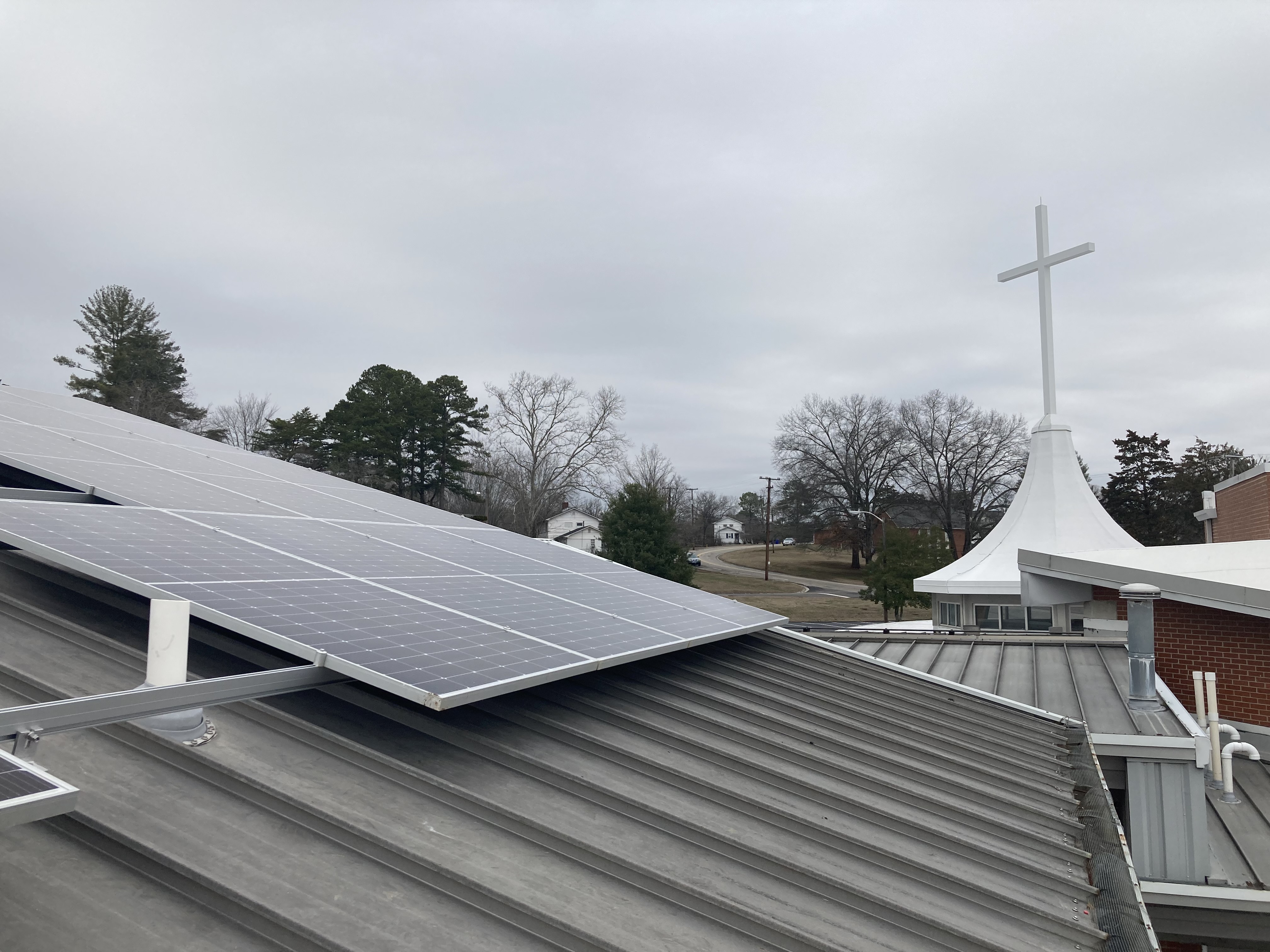
7 Affordable and Clean Energy (35)
Ensure access to affordable, reliable, sustainable and modern energy for all
TVA’s Bull Run coal plant goes dark in Oak Ridge. More fossils to follow?
Written by Ben Pounds Bull Run Fossil Plant in Anderson County, Tennessee, is officially offline as of Dec. 1, 2023, according to the Tennessee Valley Authority. Abigail Baxter/Hellbender Press
Bull Run Fossil Plant in Anderson County, Tennessee, is officially offline as of Dec. 1, 2023, according to the Tennessee Valley Authority. Abigail Baxter/Hellbender Press
TVA retires coal-fired plant; just four more to go
OAK RIDGE — The Tennessee Valley Authority took another step toward its goal to phase out all its coal plants by 2035.
TVA officially announced Bull Run Fossil Plant, at 1265 Edgemoor Road in Anderson County’s Claxton community, closed on Friday, Dec. 1. The TVA board decided to close the plant four years earlier on Feb. 14, 2019. Now the utility says it plans to retire all of its coal plants by 2035. The utility has cited the environment and efficiency as reasons for closing the plants. TVA plans to create solar and natural gas plants to replace the power formerly generated by coal. TVA has not made final plans for the Bull Run site.
“It’s not an easy decision to retire a plant, but it’s one we must make to secure a reliable and cleaner energy future as our generation portfolio and load shapes change,” Jacinda Woodward, senior vice president of power operations, said in a press release.
‘Save Money, Save Energy’ Expo — at Ijams this Sunday
 Explore how to reduce your monthly power bill and increase the health and comfort of your home.
Explore how to reduce your monthly power bill and increase the health and comfort of your home.
Federal and local funding opportunities available at all income levels
KNOXVILLE — As the weather turns colder, many Knoxvillians start to worry about home heating bills. Fortunately, energy efficiency incentives and funding programs are available to Knoxvillians of all income levels through federal tax credits and rebates. Free local funding is available for qualifying customers of KUB through the “Home Uplift” program. Many Knoxvillians are unaware of these opportunities or unsure of how to access the funding programs.
Family-friendly Home Energy Expo
The local organizations that cooperate with small local businesses in the Save Money, Save Energy program and the expo and workshop at Ijams are the Southern Alliance for Clean Energy (SACE), Knoxville Utilities Board (KUB), Socially Equal Energy Efficient Development (SEEED), Sierra Club – Harvey Broome Group, Three3 (pronounced three cube) and Tennessee Interfaith Power and Light (TIPL).
Home Energy Expo at Ijams Nature Center, 2915 Island Home Ave, Knoxville, TN 37920 — Sunday, Nov. 5, 2023 from 1 p.m. to 4 p.m.
Save Money, Save Energy workshop starts at 2:30 p.m. (RSVP recommended to secure a seat)
Join SACE for a Clean Energy Generation webinar on Wed, Oct. 25 at 1:30 PM

The Southern Alliance for Clean Energy invites people to join the “Clean Energy Generation.”
We’re gaining momentum as a movement that is rising to one of the greatest challenges of our time: the climate crisis. We’re pushing for new policies and practices and taking action, no matter how small — because it takes small ripples from people at all levels of engagement to create a tsunami of change.
At the second Clean Energy Generation webinar, SACE staff, including Executive Director, Dr. Stephen A. Smith, Climate Advocacy Director Chris Carnevale, and Climate Advocacy Coordinator Cary Ritzler, will talk about what the “Clean Energy Generation” is and how you can play a role, no matter your age, abilities, income or zip code.
SACE’s Executive Director will also share the ways he is taking clean energy action in his home, and how you don’t have to be an expert to connect with your community and make meaningful change: learning more is a good place to start. We’ll also show how small groups of neighbors, students and friends are coming together to accomplish specific climate-actions goals. And we’ll have time on the webinar to answer your questions.
Can’t make it? Register anyway and we’ll send you the recording plus a few follow-up resources.
The Clean Energy Generation is motivated by what our daily lives, communities, country, and planet will look like when clean energy replaces decades of dirty pollution from fossil fuels. We are working together for communities powered by clean energy with good jobs, clean air and water, clean transportation, a stable climate and affordable bills, where all of us can thrive.
Solar for All: An opportunity to expand alternative-energy access
Written by Southern Environmental Law Center The historic federal climate legislation known as the Inflation Reduction Act passed last summer. The $7 billion program will help fund rooftop solar projects benefiting communities with lower incomes and provide workforce development enabling millions of households’ access to affordable, resilient, and clean solar energy. Southern Environmental Law Center
The historic federal climate legislation known as the Inflation Reduction Act passed last summer. The $7 billion program will help fund rooftop solar projects benefiting communities with lower incomes and provide workforce development enabling millions of households’ access to affordable, resilient, and clean solar energy. Southern Environmental Law Center
A competitive grant program to bring solar power to people with limited incomes has found huge demand in the South
CHARLOTTESVILLE — Alabama, Georgia, North Carolina, South Carolina, Tennessee and Virginia, as well as other tribal governments, municipalities and nonprofits submitted applications for Solar for All, a new program designed to expand solar access.
Part of the historic federal climate legislation, the Inflation Reduction Act passed last summer, the $7 billion program will fund rooftop solar projects benefiting communities with lower incomes and provide workforce development enabling millions of households’ access to affordable, resilient and clean solar energy and related jobs. These funds have the potential to double the number of rooftop solar customers with 100 percent of cost saving solar, benefiting customers that would not otherwise be able to access solar.
“This is a generational opportunity to enable low-income households in the South to access affordable, resilient, and clean solar energy,” Thompson said.
Inflation Reduction Act charges positive clean-energy results in Southeast
 Electric car recharging. Courtesy Wikipedia Commons
Electric car recharging. Courtesy Wikipedia Commons
KNOXVILLE — This month marks the one-year anniversary of the Inflation Reduction Act, the most significant clean energy and climate action legislation in U.S. history, and our region is already seeing massive economic benefits. Consider this: just one year into the Inflation Reduction Act (IRA), four Southeastern states rank in the top 10 nationally for new clean energy investments:
- Georgia: $18.83 billion with 22 new major clean energy projects, the 2nd most in the nation
- South Carolina: $11.71 billion with 20 new major clean energy projects,
the 3rd most in the nation - Tennessee: $5.76 billion with 13 new major clean energy projects, the 6th most in the nation
- North Carolina: $9.61 billion with 9 new major clean energy projects, the 10th most in the nation
- Florida: $503 million with 5 new major clean energy projects
The Southeast will also be a leading hub for electric vehicle (EV) manufacturing with more than 60,000 announced jobs, according to SACE's fourth annual Transportation Electrification in the Southeast report, produced with Atlas Public Policy, which will be published next Wednesday, September 6. The report also shows that Georgia leads all states in the country for announced EV manufacturing jobs. Join us for the webinar on September 6 at 11:00 a.m. ET to hear more highlights of the report.
While the economic growth numbers from the first year of the IRA are encouraging, the real impacts will be measured by the people and communities that will benefit from the transition to clean energy.
— Southern Alliance for Clean Energy
Citizens continue call for TVA to adopt sustainable alternatives to coal plants
Written by Ben Pounds Citizens are objecting to plans to replace the coal boilers at Kingston Fossil Plant with natural gas. Ben Pounds/Hellbender Press
Citizens are objecting to plans to replace the coal boilers at Kingston Fossil Plant with natural gas. Ben Pounds/Hellbender Press
Solar? Gas? Future of Kingston plant up in the air
KINGSTON — Tennessee Valley Authority is considering whether to go with gas or solar power after it closes the infamous Kingston Fossil Plant in Tennessee.
The plant has stood since 1955 in Roane County. The federal utility plans to close Kingston Fossil plant and is looking at ways to replace the power it generated. It’s asking the public for comments. The utility’s proposals center around replacing the power generated by the plant with either solar generation or natural gas. One option includes replacing the coal-powered plant at the site with a fossil gas plant.
TVA recently proposed to retire three units between 2026 and 2031 and the other six units between 2027 and 2033. Ash spilled from a dike at this plant in 2008. A lawsuit was recently resolved surrounding the health damage to people working on cleaning up the spill. TVA has identified trouble with starting up and shutting down the plant for power generation and technical issues with lower boilers as the reasons for closing the plant, not the spill.
To critics’ dismay, TVA plans to replace coal with natural gas. The utility also plans to double its solar supply.
Written by Ben Pounds
Citizens call on TVA to stop passing gas
KNOXVILLE — The Tennessee Valley Authority in coming years plans to add both natural gas and solar plants to its portfolio to meet what it says are rising energy demands.
TVA’s Board of Directors laid out the federal utility’s plan in a meeting at Norris Middle School in May. Environmentalists at a previous hearing criticized the utility’s focus on natural gas rather than renewables or other measures. Other people, largely tied to local power providers, argued that a switch to renewable energy would be unreliable.
TVA showed a map in a press release following the meeting, showing four proposed natural gas plants and two proposed solar plants. Two of those natural gas plants would be in Tennessee while the other two are planned for Alabama and Kentucky. It stated these new plants will total 3,800 megawatts. It also spoke of its System Operations Center, set to open in fall 2024 in Georgetown to manage the utility’s grid. TVA also stated a desire to research nuclear technologies.
“Our region is experiencing growth at six times the national average, which means we must invest in our current power system and build new generation so we can continue meeting our region’s demand,” said TVA president and CEO Jeff Lyash.
Several citizens criticized TVA’s focus on natural gas plants and new pipelines at the listening session May 9. Among them was Clinton resident and activist John Todd Waterman.
- tva board
- tva board meeting
- tva climate change
- tva fossil plant
- climate action
- climate change appalachia
- jeff lyash
- system operations center
- natural gas
- natural gas power plant
- natural gas environment
- natural gas bad?
- tva kingston
- tva bull run
- john todd waterman
- tva systems operation center
- dana moran
- sierra club natural gas plant
- mark kimbell
- gallatin department of electricity
- coal plant replacement
- natural gas vs coal
- investment in new fossil fuel infrastructure
- fossil fuel
- fossil fuel industry
- fossil gas power plant
- tennessee valley authority
- climate change
- tva solar energy
- solar energy
- solar energy in tennessee
KUB and SACE provide a guide to a home efficiency uplift
KNOXVILLE — Are you looking to take control of your utility bills to not only save money but also breathe easier knowing your home is healthier and more comfortable? Join us this Wednesday, May 17, from 6-8 PM for a free workshop to learn about newly available, once-in-a-generation funding, resources, and rebates that everyone can benefit from, regardless of if you own or rent your home, or if you have high or low income, through local and federal funds.
KUB is providing free (yes, free) home energy improvements for income-eligible customers through the Home Uplift program. New or repaired HVAC units, attic and wall insulation, appliances, and electric water heaters are just a few of the home energy upgrades that you may receive. Plus, professional crews are ready and waiting to do the work so you don’t have to.
— Southern Alliance for Clean Energy
Oak Ridge churches harness ‘God's gift of sunshine’
Written by Ben Pounds This view shows the main sanctuary from the side building that hosts Oak Ridge Faith Lutheran Church’s solar panels. Ben Pounds/Hellbender Press
This view shows the main sanctuary from the side building that hosts Oak Ridge Faith Lutheran Church’s solar panels. Ben Pounds/Hellbender Press
How two East Tennessee churches went solar, and can help your congregation do it, too
OAK RIDGE — On two church roofs on the same road in this small town that helped harvest the atom, panels catch the sun’s rays for electric power.
Oak Ridge Unitarian Universalist Church at 1500 Oak Ridge Turnpike and Faith Lutheran Church at 1300 Oak Ridge Turnpike added solar energy at different times through different companies using different federal incentives. ORUUC added its panels in 2015; Faith Lutheran added them in March 2022. Members of both churches involved in the solar projects spoke to both the challenges involved and the benefits. They said their churches benefited both financially and spoke of the benefits to the planet.
“I really hope it works well for us as well as for the environment,” said George Smith, associate pastor at Faith Lutheran. “I’m fond of thinking that we’re turning God’s gift of sunshine into a gift of cash for ministry.”
- church solar panel
- https://wwwsolaralliancecom/
- oak ridge universalist unitarian church
- faith lutheran church oak ridge
- green interfaith network
- hal hoyt oak ridge
- ben pounds journalist
- ted jackson
- inflation reduction act
- solar for nonprofits
- solar alliance
- solar power
- solar power east tennessee
- george smith solar
ORNL gets boost to make airliners cleaner
OAK RIDGE — The Center for Bioenergy Innovation has been renewed by the Department of Energy as one of four bioenergy research centers across the nation to advance robust, economical production of plant-based fuels and chemicals. CBI, led by Oak Ridge National Laboratory, is focused on the development of nonfood biomass crops and specialty processes for the production of sustainable jet fuel to help decarbonize the aviation sector.
The DOE announcement provides $590 million to the centers over the next five years. Initial funding for the four centers will total $110 million for Fiscal Year 2023. Outyear funding will total up to $120 million per year over the following four years, contingent on availability of funds.
“To meet our future energy needs, we will need versatile renewables like bioenergy as a low-carbon fuel for some parts of our transportation sector,” said U.S. Secretary of Energy Jennifer M. Granholm. “Continuing to fund the important scientific work conducted at our Bioenergy Research Centers is critical to ensuring these sustainable resources can be an efficient and affordable part of our clean energy future.”
— Sara C. Shoemaker, Oak Ridge National Laboratory
More...
Government Accountability Office: TVA lagging in climate change adjustments
Written by Adam Goldstein TVA service area and power generation assets. Tennessee Valley Authority (TVA) | GAO-23-105375
TVA service area and power generation assets. Tennessee Valley Authority (TVA) | GAO-23-105375
GAO report concludes TVA is flat-footed on climate-change risks to infrastructure
This story was originally published by Tennessee Lookout.
WASHINGTON — Extreme weather patterns have sparked several improvements to the climate resiliency of Tennessee Valley Authority electrical infrastructure over the past two decades.
A report from a government watchdog, however, found the huge utility still has work to do in mitigating climate hazards to the regional power grid. (Bitter cold around Christmas led TVA to implement rolling blackouts).
“TVA has taken several steps to manage climate-related risks,” the Jan. 30 report from the Government Accountability Office said. “However, TVA has not conducted an inventory of assets and operations vulnerable to climate change, or developed a resilience plan that identifies and prioritizes resilience measures to address specific risks.”
One issue: The Southeast has experienced a period of accelerated warming since the 1960s. Among cities in the region, 61 percent are experiencing worsening heat waves, a percentage greater than anywhere else in the country, according to the GAO.
The report came in response to a five-part joint request for information on the climate resiliency of U.S. infrastructure, from U.S. Senate Energy and Natural Resources Committee Chair Joe Manchin III of West Virginia and Environment and Public Works Committee Chair Tom Carper of Delaware. The two Democrats sent their request to the GAO on May 13, 2019.
8 billion people and counting in the face of climate change
Written by Maureen Lichtveld Flooding is seen outside a popular hotel in Pakistan following historic and devastating flooding linked largely to the melting of highland glaciers. Wikipedia Commons
Flooding is seen outside a popular hotel in Pakistan following historic and devastating flooding linked largely to the melting of highland glaciers. Wikipedia Commons
Global population growth promises a drastic spike in public health emergencies
This story was originally published by The Conversation. Maureen Lichtveld is dean of the School of Public Health at the University of Pittsburgh.
There are questions that worry me profoundly as an environmental health and population scientist.
Will we have enough food for a growing global population? How will we take care of more people in the next pandemic? What will heat do to millions with hypertension? Will countries wage water wars because of increasing droughts?
These risks all have three things in common: health, climate change and a growing population that the United Nations determined passed 8 billion people in November 2022, which is double the population of just 48 years ago.
- climate change
- human population
- how many people live on earth
- the conversation
- public health challenges and climate change
- population growth
- maureen lichtveld
- university of pittsburgh school of public health
- infectious diseases
- drought
- food and water security
- extreme heat
- population growth and public health
- dengue
- malaria
- human infectious diseases
- air quality
Austria to sue the European Union if it labels nuclear and gas power plants as “green infrastructure”
VIENNA — Leonore Gewessler, Austria’s energy and climate minister announced that she would take the case to the European Court of Justice if the union’s executive proceeds with plans to include nuclear and natural gas in the EU taxonomy of sustainable finance.
About gas, Gewessler said that it releases unconscionable amounts of greenhouse gases. “Just because something is less bad than coal doesn’t make it good or sustainable.”
Regarding nuclear energy she said it has unpredictably high risks, referring to Chernobyl and Fukushima. She also mentioned as great concerns, the safe disposal of spent nuclear fuel and lack of a global solution for its final storage.
DOE energy justice official: New power paradigms must protect the poor
Written by Thomas Fraser The inordinate burden of energy costs is shown in this slide presented by Tony Reames during a discussion of energy injustice at the University of Tennessee Howard Baker Center. U.S. Department of Energy
The inordinate burden of energy costs is shown in this slide presented by Tony Reames during a discussion of energy injustice at the University of Tennessee Howard Baker Center. U.S. Department of Energy
Department of Energy official pushes goals for energy equity in midst of power turmoil
KNOXVILLE — Energy injustice seems abstract until you run extension cords to your neighbor’s house and store their food in your fridge because their power got cut off.
What else are you supposed to do? Maybe start raising hell about the utility inequities faced by poor people that are clearer every day in an energy marketplace scarred by war and inflation and manipulated by global petroleum cartels?
“We’re at a critical moment in our society. Across the globe, we are hearing about energy insecurity, energy, affordability issues, a lack of resources,” said Tony Reames, Department of Energy deputy director of energy justice, a newly created position at DOE.
- howard h baker jr center for public policy
- tony reames
- energy injustice
- energy conservation
- minority energy use
- doe energy justice
- inflation reduction act
- inflation reduction act clean energy
- energy injustice black americans
- poverty
- utility disconnection
- energy insecurity
- make home more energy efficient
- social justice
- lowincome household
- minority household